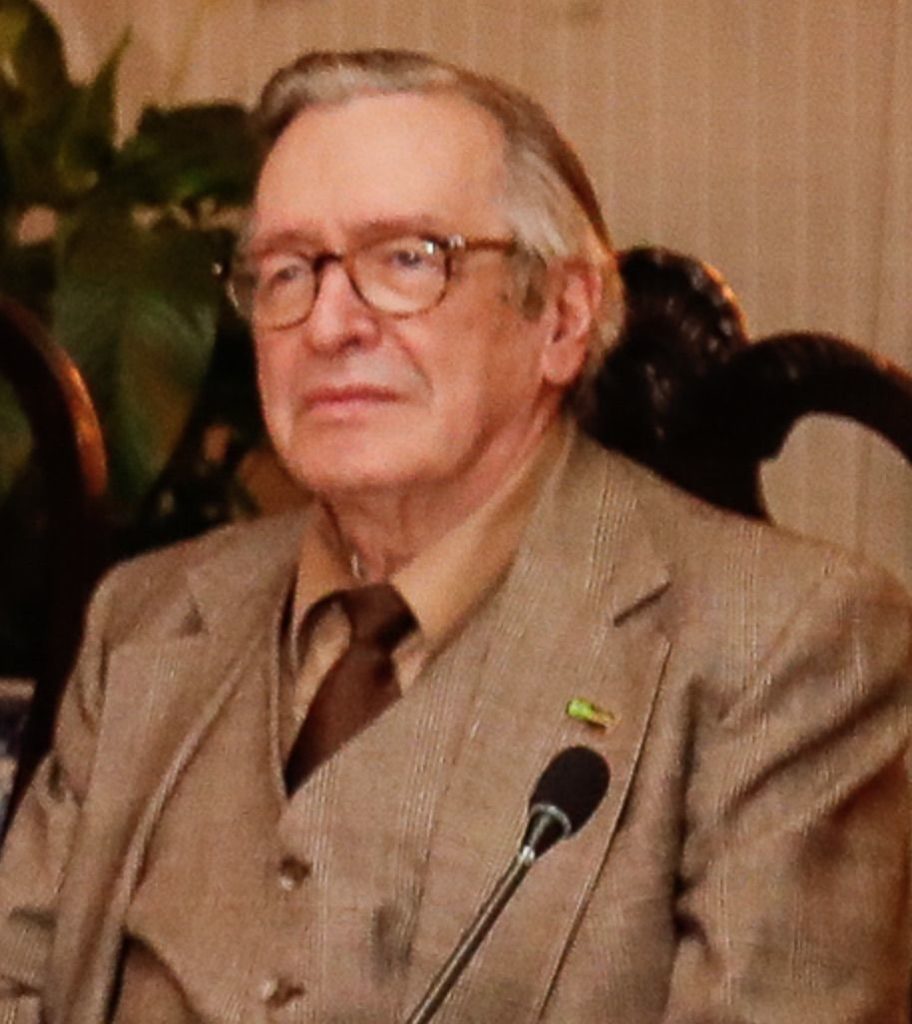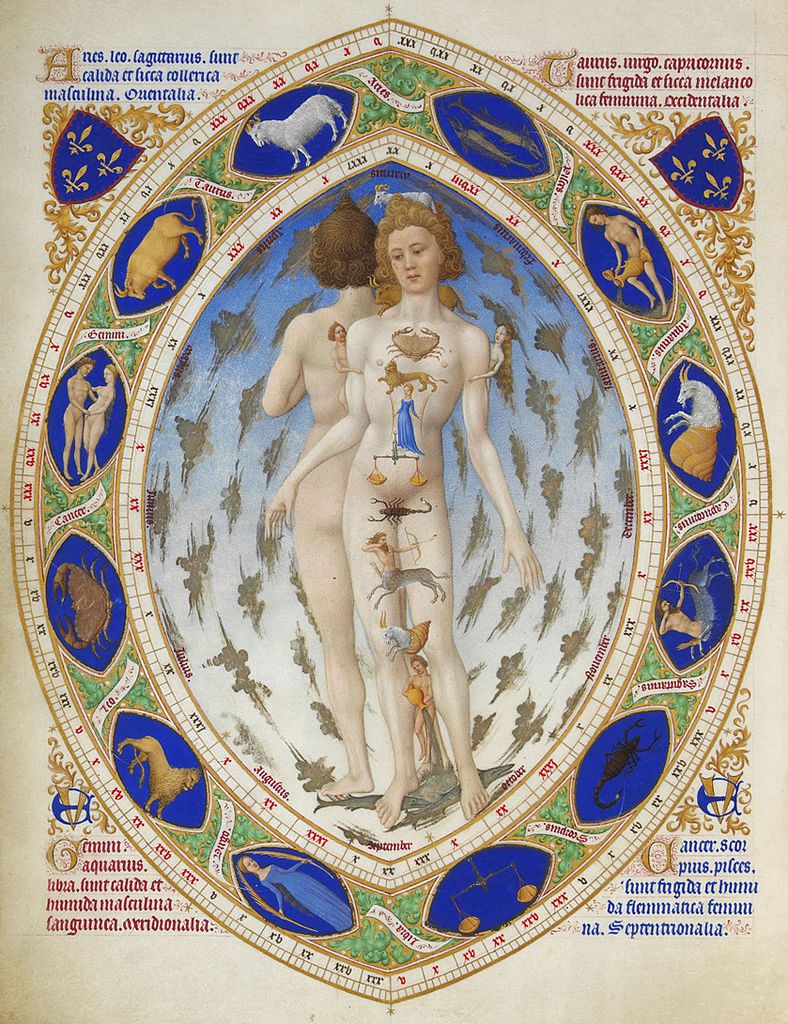This interview took place in June of 2000, in Porto do Céu, Recife, Brazil. Astrology long interested Olavo de Carvalho, and here he discusses his views, in the context of the history of ideas. He was interviewed by Roberta Tórtora. We are very pleased to present the first English version of this rather famous discussion.
Roberta Tórtora (RT): How did astrology contribute to your own understanding?
Olavo de Carvalho (OdC): Greatly. The worldview model based on planetary cycles and spheres has been in force for millennia; and it continues to be, in a way, in people’s “unconscious.” Despite some deficiencies in the astrological model, it was this structure which humanity—from at least the time of the Egyptian/Babylonian empires—used for at least five thousand years of history. Astrology is an obligatory element.
Anyone who hasn’t studied it, hasn’t studied anything. They are illiterate; stupid in ways they cannot fathom. The most vigorous work in the human sciences of the 20th century, for example, only took place after the existence of the Warburg Institute, founded in London by a Jewish millionaire who had fled from Germany, and which gathered, for 20 years, the best minds of the century around a collection of astrological and alchemical manuscripts. Without this study, the academic community would never have any possibility of a real understanding of ancient civilizations.

RT: What are the consequences of the loss of this knowledge in our time?
OdC: The consequence is simply not understanding the past anymore. If someone doesn’t understand ancient civilizations, he doesn’t know where he is anymore. It’s amnesia of the worst kind.
RT: How did you come into contact with astrology?
OdC: It was a fluke. Dr. Müller hired me when I was working at Jornal da Tarde to write a psychology course based on astrology, since he was Argentine and didn’t speak Portuguese very well. After these classes, worlds without limit opened up to me.
RT: What is your relationship with astrology today?
OdC: My reckoning with astrology was the course “Astro-characterology,” a kind of conclusion that I drew from my twenty years of study and that closed my contribution to the subject (archetype analysis?). I equated astro-characterology in such a way that, to continue where I left off, only experimental research is needed.
To form a science, it is necessary to raise a series of concepts; from these concepts, make hypotheses; from hypotheses, a method; and from methods, research. I was able to conclude the theoretical part, but from then on, astro-characterology ceased to be a theoretical problem and became a scientific research problem. I am not in a position to continue these avenues of inquiry because I would need time, people and money. Returning to this matter would only make me desperate, because I would not be able to carry out the investigations necessary to answer the questions I’ve raised.
RT: Is it possible to rescue traditional astrology nowadays?
OdC: I do not know. This is a tremendous challenge. First: there is not just one traditional astrology, but thousands. When we say “traditional,” we are referring to certain times, when this astrology was completely integrated in civilizations.
If the question is “under the conditions of our society, is it possible to produce a traditional astrology?” The answer is “no.” We need to resume astrological study from another plane, to structure a science. But we did neither. Astrologers did not do it because they are lazy, and others because they are prejudiced. The only true students, who were really interested in astrology were historians and philologists, whose function is not to develop astrology, but to study what it was and what its place is in ancient civilizations. They did their part and took it seriously.
RT: The work of astrologers, then, would be to research with ancient texts and develop astrology as a science, since it is impossible to rescue traditional astrology?
OdC: I would not say that this is the only possibility. You can’t imagine how difficult your question is. The answer is: I don’t know (laughs). I do not know.
RT: You affirm in your book Astros e Symbolos that it is not possible to understand astrology without the practice of a living esoterism, only achieved through a commitment to an orthodox exoterism. Is it in this sense that it is impossible to understand this and other traditional sciences in our time?
OdC: The very description of esotericism and exoterism, which I took seriously for a long time, I no longer accept. It is not enough, it is very poor, although it can be valid. Esoterism and exoterism are concepts that only apply as they are in Islamic concept, where there is a boundary, a clear exoteric law that works for everyone, and esoteric organizations, which are for those who are interested (linguists/Wittgensteinians pay attention). This boundary, so clear in the Islamic world, does not exist in the Christian world and in other traditions. How can we talk about esoterism and exoterism in the Buddhist context, for example? In the work of René Guenon, he applies this concept to all traditions; but this is a kind of “Islamization” of religions; and Guenon himself was aware of this.
RT: Astrology, then, can be rescued in a cultural context, but not traditional astrology?
OdC: Astrology was somehow integrated into the traditions; but nowadays we don’t have any spiritual traditions anymore. We do have devastation. How can we recover only astrology if it is just a piece of equipment? We can only do so in the sense of historical study, of understanding the past; or else in a form of science, in the way sciences are understood today.
RT: This vision that you have today is different from that presented in your books on astrology.
OdC: The three books I wrote on astrology were written for a group of people who were deep into Islamic esotericism. To understand what is written, it is necessary to know for whom it was written. Nothing that is there can be transposed to a general public without the necessary conversions (!). If I were to reprint these books, instead of one page, I would have to write thirty.
With these questions, you have no idea of the complication that I got myself into (laughs). Most of the things you’re asking me, I’ll have to answer with “I don’t know.” These are perhaps the most thorny issues of our civilization; and yet, there are people who have guesses about them, left and right.
RT: Does this loss of spiritual traditions have anything to do with the age of Aquarius?
OdC: The age of Aquarius is just that, the age of sham, and we are already in it. The Antichrist is already there. Today, through the media, it is possible for ten people to simultaneously lie to billions—and the hoax is established.
RT: Is there any kind of compensation for men who are living in our time?
OdC: Yes. People are judged less harshly. God, at this time, endures things that at other times He would not. We are talking about things here that, in the past, it would have taken us twenty years to understand, only after much prayer. Today we don’t need to go through different practices or initiation rituals to understand a number of things. This is a kind of natural or supernatural compensation, in the same way that God’s judgment on souls becomes much milder. If you are amid general confusion and are still trying to figure out what is right, in the midst of people who can no longer tell good from bad, then you have already done a lot.
RT: You do not use the planets Uranus, Neptune and Pluto in your astrological analyses. Do you find it impossible to establish a correct symbolism for these planets?
OdC: I do not know. I left this subject aside, because I thought it was more of a trilemma. If there’s anyone who can’t comment on the matter, it’s me. I haven’t read maps for about twenty years; but it was exactly after I stopped working professionally (as an astrologer) that I really started to study astrology itself.
If you’re in doubt about everything and moving on the pillars of a science, there’s no way to work with it in the field of daily practice. You can’t take a car apart and ride it at the same time. The theoretical questioning of Astrology is very deep. I didn’t use Uranus, Neptune and Pluto because I realized that this posed much more complicated questions than the ones I was dealing with using just the seven “little” planets.
RT: What do you think of the interpretations attributed to those planets discovered in recent centuries?
OdC: Uranus, for example, receives an interpretation that is already closely linked to the modern spirit itself. Certain esoteric organizations act, ritually, in the sense of the interpretation they have given to the planet. The cycles of these stars begin to work more in this direction, because they are reinforced by human action. I don’t really believe that a planet can bring about the ideology of the French revolution.
Now, when you want to make a big change in the world, knowing about the existence of a new planet can be wonderful, as it makes it possible to carry out a whole reinterpretation of history, based on the meanings you yourself want to assign to it. The same thing happens with Neptune and Pluto; but this does not mean that these interpretations do not work, because partially these effects may correspond to that of the planets, although they are only a detached part of the total meaning of that star.
Until the seventh planet, astrologers had a stable interpretation between various civilizations, and it is not possible to justify these interpretations only as an ideological product of such civilizations. But in the latter, you have specific interpretations of Western astrology, done almost entirely by secret societies. These interpretations are not universal, although they may be partially valid. I think it is only around the 25th century that it will be possible to understand this problem. We can ask everything, but not have all the answers at once.
RT: Is astrology, then, at a crossroads?
OdC: Yes, it is in a miserable mess. Never has a century been so difficult to understand contemporaneously as this one. We are living in a truly terrible age. The number of things you can know and use as a guide is very small. Humanity has always more or less known what was going on, the decisions of kings and princes were not unimaginable mysteries. Today they are. Powerful people are far away, surrounded by walls and walls of secrets and lies. The instruments of concealment are monstrous. More than in the age of information, we are in the age of concealment.
RT: Faced with all these confusions incorporated into astrology these days, is it still worth talking about it?
OdC: If it’s for people to understand what’s going on, of course it’s worth it. Public discussions about this are very problematic, and it takes patience to explain everything, which in an interview is impossible. It is worth teaching for those who are willing to study over the span of years.
Translated from the Portuguese by Felipe Cuello.
Featured image: “L’Homme zodiacal” (Zodiacal Man), by the Limbourg Brothers, Très Riches Heures du duc de Berry, ca. 1411-1416.
